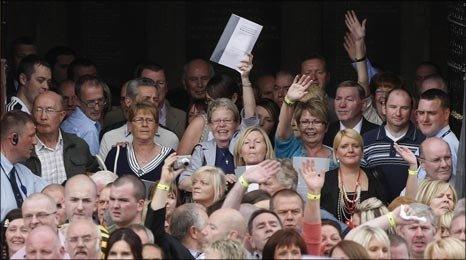Martin McGuinness tells of mother's shock to find he was in IRA
- Published
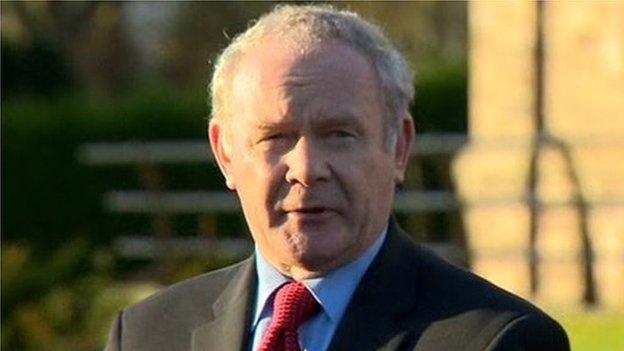
Martin McGuinness said his mother was "traumatised" to discover he had joined the IRA
Northern Ireland's deputy first minister has said his mother discovered he was in the IRA when he left a beret in her house in the 1970s.
Sinn Féin's Martin McGuinness said his mother Peggy was "traumatised" to learn the truth.
He was talking to BBC journalist Peter Taylor for a TV documentary to be broadcast on Monday, 29 September.
The former IRA commander from Londonderry joined the IRA in 1970, shortly after the Troubles began.
He said he had not told his parents about his membership of the paramilitary organisation.
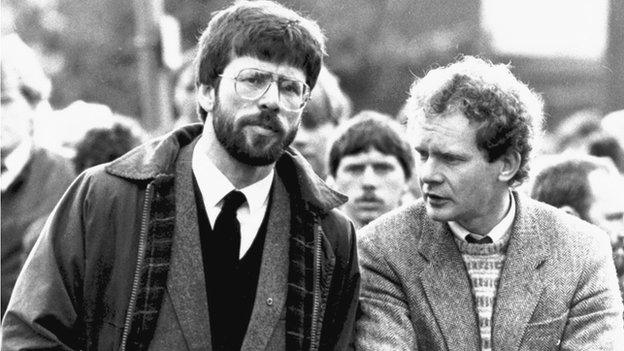
Sinn Féin president Gerry Adams with Martin McGuinness in 1987
"My mother found, I think it was a black beret or something like that, in the house and it immediately traumatised her, I think," he said.
His mother, Peggy McGuinness, died in 2008 aged 84.
Looking back on the moment when she found out, he said: "She did not hit me with it or anything like that or if there were gloves, there was no smack across the face with the gloves.
"I think that it was a moment in time and she was obviously annoyed at the prospect that all of our lives were changing and maybe mine more dramatically than anybody else's."
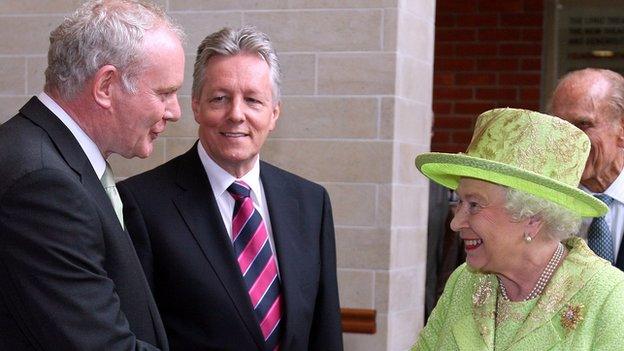
Martin McGuinness shook hands with the Queen in Belfast in June 2012
On 30 January 1972, the Army shot dead 13 innocent civil rights protesters in Derry on Bloody Sunday.
Martin McGuinness was second in command in the IRA at that time. He later addressed the Saville Inquiry, set up to establish why those people were killed.
The inquiry found that Mr McGuinness was present at the time of the violence and "probably armed with a sub-machine gun" but did not engage in "any activity that provided any of the soldiers with any justification for opening fire".
He rose to become a senior figure in the IRA and Sinn Féin and was involved in negotiations with the government that led to paramilitary ceasefires and the 1998 Good Friday Agreement.
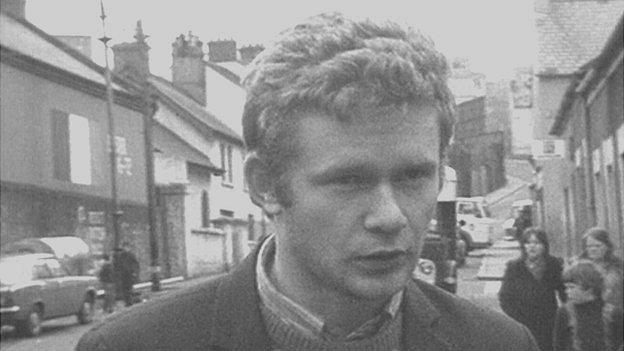
A young Martin McGuinness pictured in Derry
In June 2012, he shook hands with the Queen on her visit to Northern Ireland - a photograph that became a symbol of reconciliation.
Earlier this year, Mr McGuinness attended a Windsor Castle banquet hosted by the Queen marking the state visit to Britain of Irish President Michael D Higgins.
The deputy first minister has also called for a border poll in Northern Ireland on unification with the Republic of Ireland and said he was fighting politically for reunification.
In recent years, Mr McGuinness has insisted his job had become a political one.
"My war is over, external," he said. "My job as a political leader is to prevent that war and I feel very passionate about it.
"I want to build a better future for all our people. It is a political project, not a military one."
The documentary Who Won The War will be broadcast on BBC One NI on Monday 29 September at 21:00 BST.
- Published26 September 2014
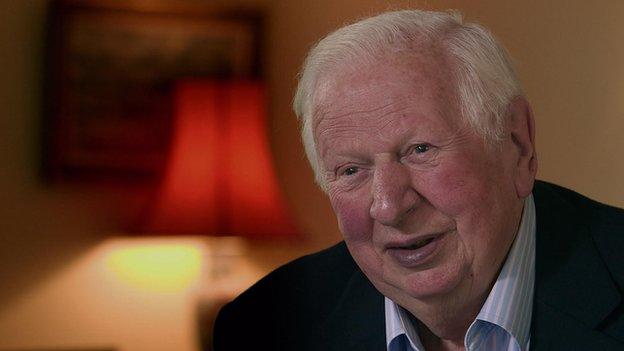
- Published26 September 2014
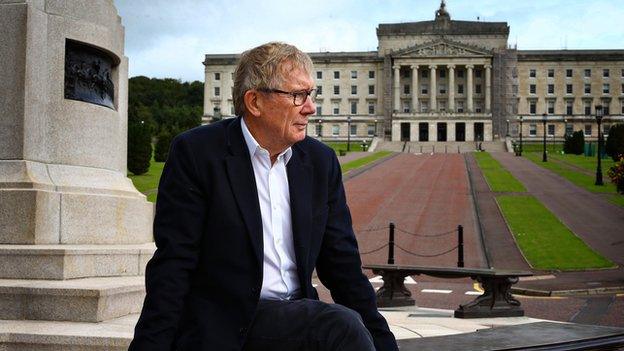
- Published26 September 2014

- Published27 June 2012
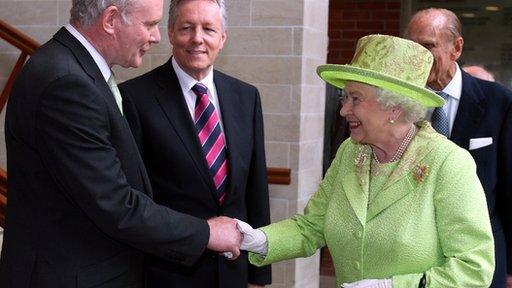
- Published12 June 2010
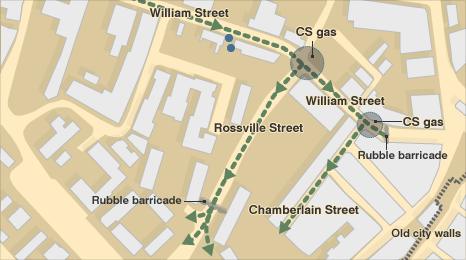
- Published15 June 2010
